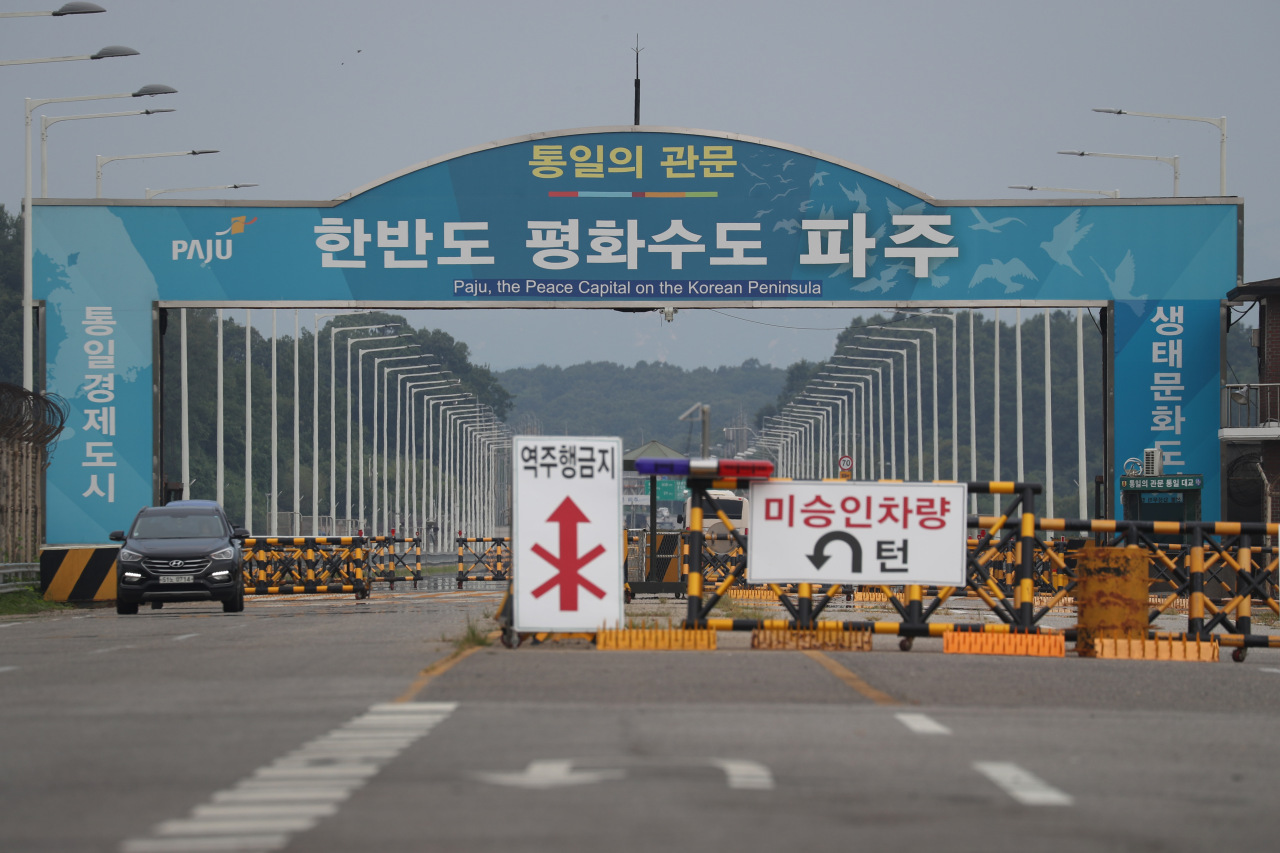North Korea on Wednesday stepped up threats against Seoul and Washington, saying that it will give the allies “a serious security crisis” for hosting joint military drills.
“(North Korea) will make (Seoul and Washington) feel how close they are to a tremendous security crisis,” Kim Yong-chol, head of the North’s United Front Department handling inter-Korean affairs, said in a statement.
Kim, saying that the South has rejected the chance to improve inter-Korean relations, also hinted at further measures without elaborating.
“The price of answering our good intentions with hostile actions must be shown clearly,” Kim said, adding that North Korea will “continue with what we must do without pause.”
Kim appears to have been referring to the revival of the inter-Korean communications lines. The North, however, has not responded to calls from the South since Tuesday.
“As South Korea and the US have chosen conflict with us, it is clear that we cannot make a different choice.”
The statement came a day after a similar threat from Kim Yo-jong, North Korean leader Kim Jon-un’s sister. In Tuesday’s statement, Kim Yo-jong said that Seoul and Washington will ”pay the price for the self-destructive act,“ referring to the military drills.
North Korea’s threats against Seoul and Washington are likely to be aimed at unifying its people in the face of a faltering economy by using the allies’ military drills as a justification, experts say.
“The North clearly understands that canceling the joint drills is an impossible call,” said Shin Jong-woo, a senior analyst at the Korea Defense and Security Forum, noting that the upcoming drills are the first ones led by the new chief of the Combined Forces Command.
“With internal complaints exploding over the prolonged COVID-19 pandemic and the recent flooding, the North Korean leadership is escalating tensions with the South to unify its people.”
Choi Kang, acting president of the Asan Institute for Policy Studies in Seoul, echoed the view. He pointed out that Kim Yo-jong’s statement was carried by the Rodong Sinmun targeting North Koreans, and not by the Korean Central News Agency, its state-run media outlet for the outside world.
The recent hotline restoration between the two Koreas was not published in the Rodong Sinmun, signaling the communist party’s intention to downplay the meaning for its people.
“The level of her rhetoric was higher than usual and more concrete. She also mentioned Kim Jong-un in the statement, which stressed the whole decision was made by her brother,” Choi added.
Experts said military provocations like tests of submarine-launched ballistic missiles could follow, possibly early next month after the South Korea-US military drills. Because the North’s ultimate goal is to get reprieve from international sanctions, it would not cross the line by launching more aggressive actions like testing intercontinental ballistic missiles, they added.
The brewing tensions again underscored the fragile detente on the Korean Peninsula.
Until Monday, the South was full of hope that working-level talks could soon start to discuss pending issues like setting up a virtual conference system connecting the two Koreas and holding an online reunion for separated North and South Korean families as early as the Chuseok holidays later in September.
Seoul and Washington were also continuing talks to provide humanitarian assistance for the North’s relief efforts in the flood-hit eastern regions.
The North had not responded to the overtures. And now all the talks seem to be on hold.
“I’m skeptical about the inter-Korea talks resuming any time soon,” Choi said. “In order to reverse the situation, the South should give what the North wants like sanctions relief or suspension of military drills. But they cannot be offered without an agreement with the US and the agreement seems extremely difficult to be reached for now.”
On Wednesday, Seoul’s Unification Ministry said “the escalation of military tension on the Korean Peninsula is beneficial to no one.”
The government also called on the North to return to dialogue at an early date for peace and stability on the peninsula and for development of inter-Korean relations.
Choi Si-young (
siyoungchoi@heraldcorp.com) contributed to the reporting. -- Ed.
By Lee Ji-yoon (
jylee@heraldcorp.com)







![[Today’s K-pop] Blackpink’s Jennie, Lisa invited to Coachella as solo acts](http://res.heraldm.com/phpwas/restmb_idxmake.php?idx=644&simg=/content/image/2024/11/21/20241121050099_0.jpg)
